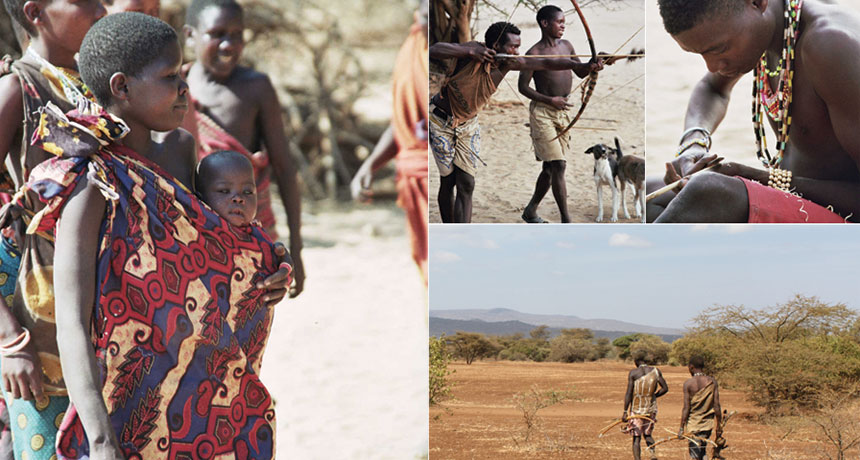Sleep time in hunter-gatherer groups on low end of scale
People in preindustrial societies may have less insomnia but no more shut-eye, study finds

REST UP Hunter-gatherers, like the Hadza shown here, sleep about as much as people in postindustrial societies do — and maybe even a little less.
Joey Roe/Wikimedia Commons (CC BY-SA 3.0)
People in the postindustrial world don’t always get a sound night sleep.